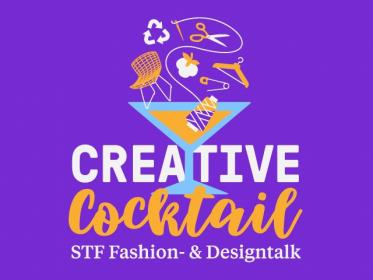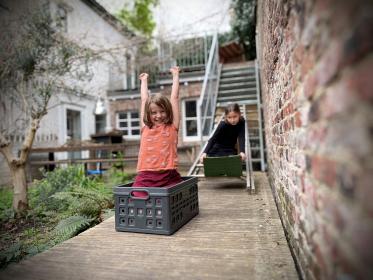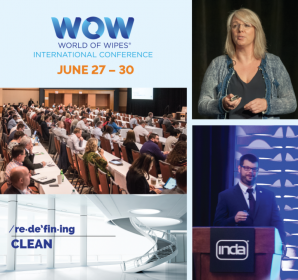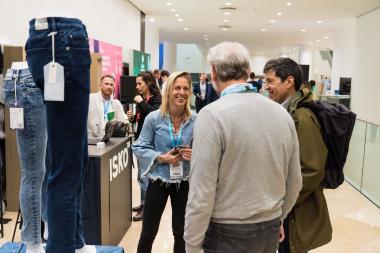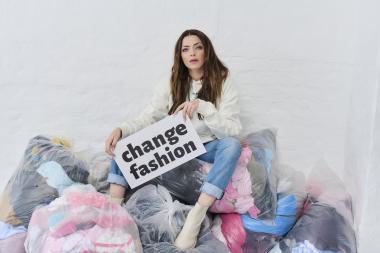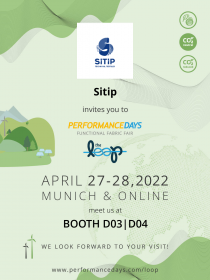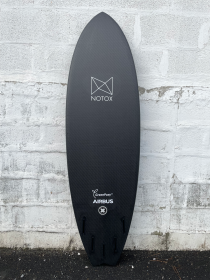Funktionstextilien aus recycelten Autoreifen
- Dyntex bringt erste Funktionstextilien aus recycelten Autoreifen auf den Markt
- Ultraleichte Stoffe aus Post-Consumer-Rezyklat (PCR) leisten Beitrag zur Nachhaltigkeit
Dyntex, Entwickler und Hersteller von Funktionsmaterialien aus Bregenz (Österreich), bietet als Produktneuheit hochwertige Stoffe aus wiederverwerteten Autoreifen an. Durch ein innovatives thermo-chemisches Verfahren wird aus alten Reifen ein Polyamid-Polymer rückgewonnen. Dieses wird zu einem feinen Garn und in der Folge zu einem ultraleichten Funktionsstoff verarbeitet. Das Interesse am nachhaltigen Material ist groß.
Qualitätsstoffe aus alten Autoreifen: Durch ein neues thermo-chemisches Verfahren wird aus geschredderten Reifen zunächst ein Pyrolyse-Öl gewonnen und daraus ein Polyamid-Polymer hergestellt. Das aus Post-Consumer-Rezyklat (PCR) bestehende Rohmaterial wird in Italien zu Garn weiterverarbeitet.
Gemeinsam mit Spezialisten aus Japan und Italien hat Dyntex daraus ultraleichte High-Tech-Funktionstextilien entwickelt. Die neu entwickelte Kollektion umfasst acht verschiedene Stoffe, der leichteste wiegt gerade einmal 36 Gramm pro Quadratmeter. Mit ihren besonderen Griffen und Optiken sind sie ideal für modische Sport- und Funktionsbekleidung.
Ressourcenschonend und hochwertig
„Wir führen bisher nicht mehr nutzbare Werkstoffe wieder zurück in den Warenkreislauf, benötigen bei der Produktion kaum fossile Ressourcen und erreichen so eine massive Reduktion des CO2-Fußabdrucks“, erklärt Alexander Gächter, Verkaufsleiter bei Dyntex.
Die Recycling-Stoffe erfüllen dieselben hohen Standards wie solche aus neu hergestelltem Polyamid. Sie sind wie alle Dyntex-Funktionsstoffe wasserabweisend, atmungsaktiv, frei von Fluorcarbon und auch bei hoher Beanspruchung sehr langlebig. Die neuen Textilien eigen sich damit ideal für Sport- und Lifestylemode sowie für Arbeitskleidung.
Wachstumsmarkt für nachhaltige Mode
Der Markt für nachhaltige Mode wächst seit Jahren stark. Entsprechend hoch ist auch die Nachfrage nach Funktionsstoffen aus recyceltem Material. Dyntex gehört zu den Vorreitern: Bereits im Jahr 2020 hat das Vorarlberger Unternehmen die weltweit ersten Funktionstextilien aus biosynthetischem Garn (Dyntex® Biological Origin) und biologisch abbaubarem Stoff (Dyntex® Biodegradable) auf den Markt gebracht.
Dyntex GmbH Funktionstextilien Recycling Outdoorbekleidung Sportbekleidung Post-Consumer-Rezyklat Nachhaltigkeit
Dyntex GmbH











